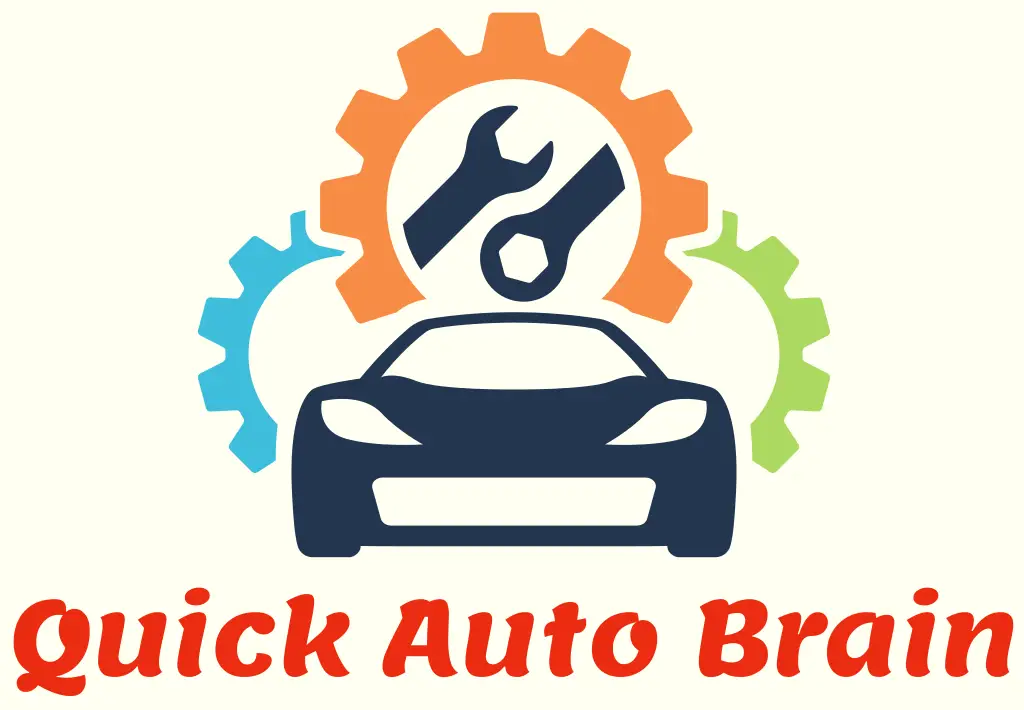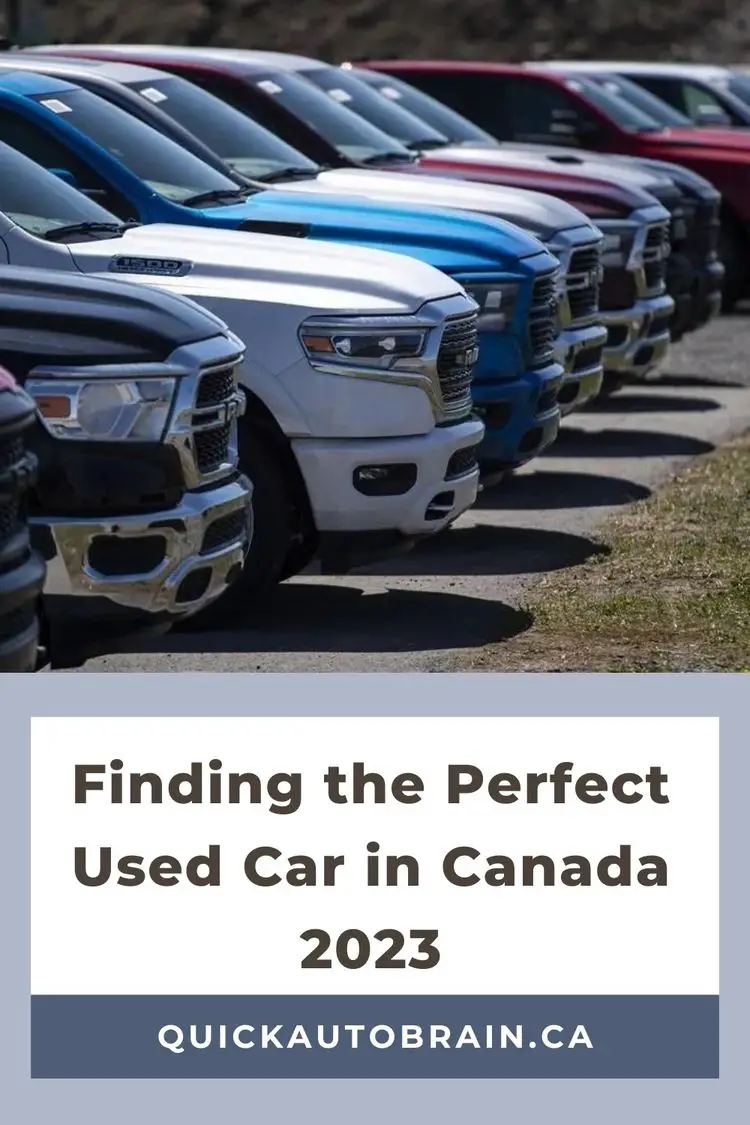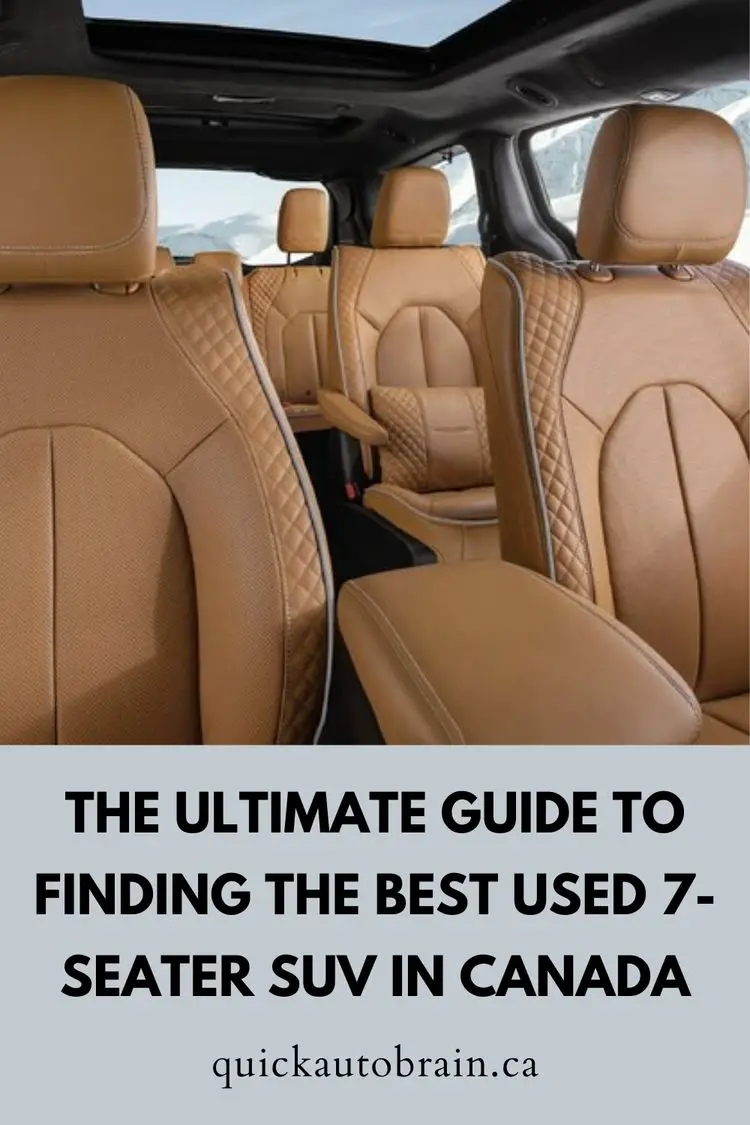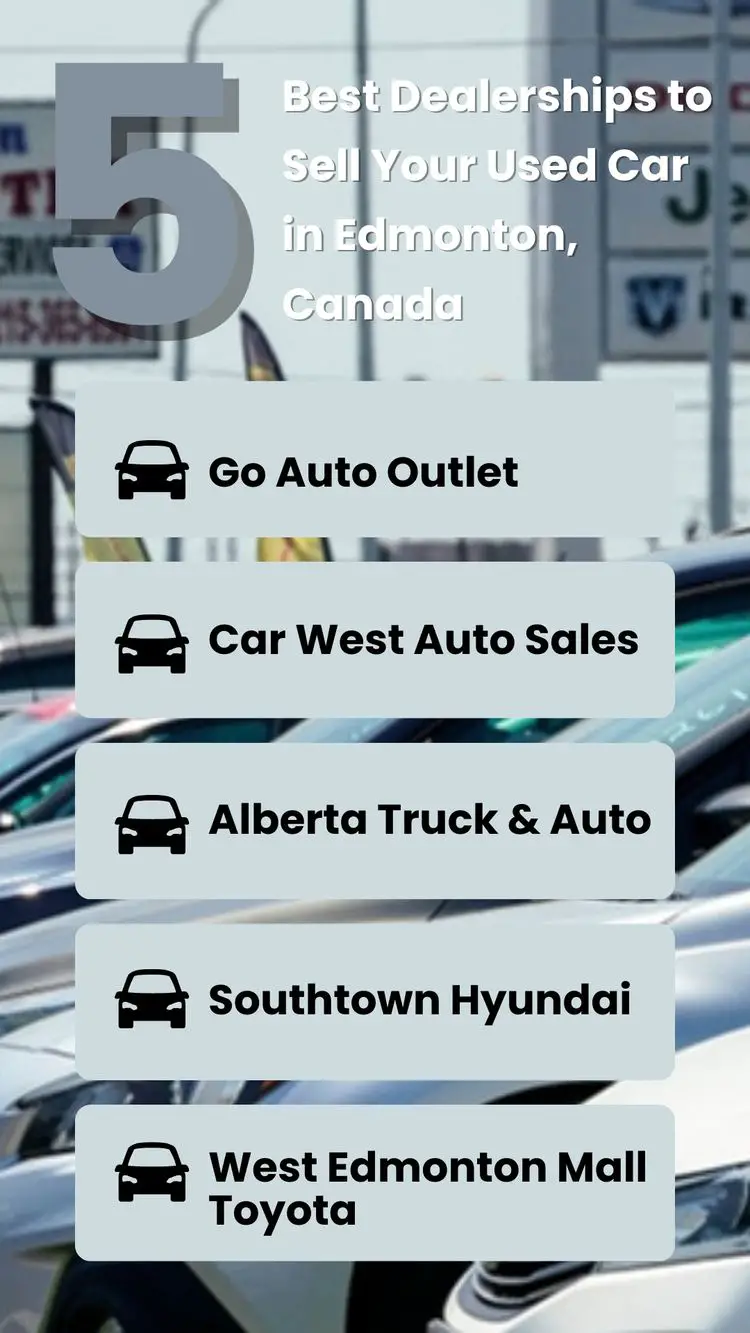When it’s time to purchase a used car, you’ll likely find yourself at a crossroads, deciding between two primary options: buying from a dealership or a private seller. Each path has its advantages and drawbacks, and the choice can significantly impact your buying experience.
In this article, we’ll explore the merits of both dealership and private seller transactions, helping you make an informed decision based on your preferences, budget, and priorities. We understand that buying a used car through a dealership or from a private seller can be a daunting experience, especially if the vendor you go to isn’t trustworthy.

While each scenario comes with its own pros and cons, here are some facts relating to each type of vehicle sale that will help you narrow down the option you are the most comfortable with.
Important Factors to Consider
Buying a used car involves several critical factors that can significantly impact your buying experience and long-term satisfaction. To make an informed decision, consider the following key factors:
Cost

Purchasing a car through a private seller often comes with a more budget-friendly price tag compared to buying from a car dealership. This is because dealerships have their own operational costs, such as employee wages and rent, which might lead them to slightly increase the vehicle’s price. However, the added quality and professionalism of customer service at a dealership can justify this cost.
Shopping at a car dealership means you’re treated with respect as they aim to build a lasting customer relationship. Private sellers may not share the same concern and might disappear after the transaction.
Warranty
While buying from a car dealership can be pricier, the vehicles they offer are less likely to experience immediate breakdowns post-purchase. In many cases, repairs are covered by a statutory warranty. Car dealerships also handle any encumbrances on the vehicle before selling it, sparing you worries about repossession due to someone else’s debt.
Conversely, private sellers typically don’t provide warranties, so you’ll be responsible for any repairs that arise. This underscores the importance of having the vehicle inspected by a trusted mechanic before purchase.
Mechanical Condition
Vehicle condition is a key distinction between private sellers and car dealerships. Dealerships often offer used cars that have been thoroughly inspected, refurbished, and certified for quality. Private sales, however, come with an “as-is” clause, leaving you with uncertainty about the mechanical condition unless you have the car inspected by a reliable mechanic. Additionally, checking the vehicle’s history for any theft records is crucial.
Financing Options
When buying from a private seller, your payment options are limited to upfront cash payments. Obtaining financing for a used car, especially through a bank or credit union, can be challenging, as many financial institutions hesitate to finance private sales due to potential reliability concerns.
Dealerships, on the other hand, offer various payment options, including in-house leasing and financing. They often have more flexible financing plans, making it easier to purchase a car, even if you don’t have the full amount upfront.
Vehicle Selection
Car dealerships provide a wider range of used vehicles to choose from. Whether you’re interested in a used SUV, sedan, hatchback, or minivan, you’re likely to find it at a dealership. You can explore vehicles from different makes and models, equipped with various features like navigation systems, leather upholstery, or heated seats.
Convenience
Dealerships offer added convenience by providing comprehensive vehicle history and ensuring the cars they sell are in good working condition. They handle all the necessary paperwork, making the purchase process smoother. In contrast, buying from a private seller might require more research and effort, including handling paperwork yourself and potentially making trips to government offices for title and registration transfers.
RELATED: Benefits of Buying a Used Car: Analyzing the Advantages and Disadvantages
Buying From A Private Seller
Purchasing a used car from a private seller can be an attractive option, especially if you’re seeking a budget-friendly deal and a straightforward buying process.
This is because there are no company overheads factored into the car price. You might also find it easier to negotiate a better deal with an individual seller rather than a dealer as they might be in a position where they are desperate to sell.
However, it comes with its own set of considerations and potential challenges. Here’s what you need to know:
- Vehicle History and Documentation:
- Begin by thoroughly reviewing the vehicle’s history. Request a comprehensive vehicle history report (e.g., Carfax or AutoCheck) to uncover details about the car’s past, including accidents, title history, and maintenance records.
- Ensure that the seller has the vehicle title in their name and that it’s clear of any liens or encumbrances. Verify the title matches the VIN on the car.
- Inspection by a Mechanic:
- Consider having a trusted mechanic inspect the car before finalizing the purchase. A professional inspection can uncover potential issues that may not be apparent to you.
- Ask the seller if they have records of past maintenance and repairs, including oil changes, brake replacements, and major services. This documentation can provide insight into how well the car has been maintained.
- Exterior and Interior Evaluation:
- Conduct a comprehensive visual inspection of the car’s exterior and interior. Check for signs of wear and tear, dents, scratches, rust, or any indications of previous accidents.
- Inspect the upholstery, dashboard, and controls for damage, unusual odors, or malfunctioning features.
- Test Drive:
- Take the car for an extensive test drive, preferably on different types of roads (city, highway, and local streets). Pay attention to how the car handles, accelerates, and brakes.
- Listen for any unusual noises, rattles, or vibrations during the test drive. Test the air conditioning, heating, audio system, and all other essential features.
- Negotiation and Pricing:
- Be prepared to negotiate the price and terms with the private seller. Research the fair market value of the car and use this information as a basis for your negotiations.
- Consider factors such as the car’s condition, mileage, age, and any needed repairs when determining an appropriate offer.
- Ownership Transfer and Documentation:
- Ensure that the seller provides a signed bill of sale that includes details such as the VIN, sale price, and both parties’ contact information.
- Check your local DMV or equivalent agency’s requirements for transferring the title and registering the vehicle in your name.
- Vehicle Resale Value: Consider the potential resale value of the car if you plan to sell it in the future. Some makes and models hold their value better than others, which can affect your long-term ownership costs.
- Personal Safety: Prioritize personal safety when meeting with the private seller. Arrange to meet in a well-lit, public place and bring a friend or family member with you for added security during the transaction.
- Payment Method: Choose a secure payment method when completing the transaction. Avoid paying in cash when possible and consider using a cashier’s check or a secure payment platform to protect both parties.
- Legal Considerations: – Familiarize yourself with local laws and regulations governing private car sales. Ensure all necessary paperwork is completed correctly to avoid potential legal issues.
Advantages Of Buying From A Private Seller
- Potential Cost Savings: Private sellers often offer lower prices compared to dealerships, providing an opportunity for budget-conscious buyers to save money.
- Direct Communication: Dealing directly with the owner allows you to ask questions, negotiate terms, and get a better sense of the vehicle’s history and condition.
- Flexible Terms: Private sellers may be more flexible when it comes to negotiations, payment methods, and arrangements, making it easier to reach a mutually beneficial agreement.
Disadvantages Of Buying From A Private Seller
- Limited Warranty: Private sales typically come with no warranties or guarantees. You’re buying the car “as-is,” which means you’ll be responsible for any repairs or issues that arise after the sale.
- Uncertainty About History: Private sellers may not provide a complete vehicle history report, leaving you with uncertainty about the car’s past, including accidents or hidden problems.
- Varied Vehicle Conditions: Private sellers may offer cars in various conditions, ranging from well-maintained to neglected. A thorough inspection is crucial to ensure you’re getting a reliable vehicle.
RELATED: A Comprehensive Guide to Buying and Using a 2021 Hyundai Venue in Canada
Buying From A Dealership
As already mentioned, dealerships can often be more expensive than buying a car privately. Dealers can be more reluctant to negotiate better deals, especially when sales teams have targets to meet as well as pressure from managers.
But although the initial cost of the car can be higher, you will have peace of mind that you have somewhere to turn to if there is an issue with the car.
Many car dealerships such as Red Potato are also able to offer you the full package from helping you find an ideal car to sourcing you affordable car finance, even if you have a poor credit history.
- Research and Preparation:
- Start your car-buying journey with thorough research. Identify the specific make and model you’re interested in and gather information about its pricing, reliability, and common issues.
- Set a clear budget that includes not only the purchase price but also taxes, fees, insurance, and potential additional costs for extended warranties or optional features.
- Dealership Selection: Research and select reputable dealerships in your area. Look for dealerships with positive customer reviews, a history of transparency, and a good reputation for customer service.
- Vehicle Inspection:
- When you visit the dealership, carefully inspect the car you’re interested in. Examine both the exterior and interior for signs of wear, damage, or inconsistencies.
- Take the car for a thorough test drive to evaluate its performance, handling, and comfort. Pay attention to any unusual noises, vibrations, or warning lights during the drive.
- Vehicle History and Certification:
- Ask the dealership for a detailed vehicle history report, which should include information about accidents, title history, and service records.
- Inquire about certified pre-owned (CPO) programs if applicable. CPO cars undergo rigorous inspections and come with extended warranties, providing added peace of mind.
- Pricing and Negotiation:
- Research the fair market value of the car you’re interested in to ensure you’re getting a fair deal. Dealerships may have some flexibility in pricing.
- Be prepared to negotiate the price and terms. Consider factors like the car’s condition, mileage, and any added features when determining an appropriate offer.
- Financing Options:
- Explore financing options offered by the dealership. Dealers often provide financing through partnerships with banks and credit unions.
- Review the terms of the loan, including interest rates, monthly payments, and the duration of the loan. Compare these terms with offers from other lenders.
- Warranty and Additional Services:
- Inquire about the warranty coverage provided with the used car. Understand the terms and duration of the warranty, as well as any additional coverage options.
- Discuss any available services such as maintenance packages or extended warranties. Evaluate whether these services align with your needs and budget.
- Legal Considerations:
- Ensure that all paperwork and documentation are in order. Review the sales contract carefully and ask for clarification on any terms or conditions you don’t understand.
- Verify that the dealership has a clear title for the vehicle and that they complete all required paperwork for title transfer and registration.
- Vehicle Resale Value: Consider the potential resale value of the car in the future. Some makes and models retain their value better than others, which can affect your long-term ownership costs.
- Post-Purchase Inspection: – After completing the purchase, consider having an independent mechanic inspect the car to ensure it meets your expectations and is free of any hidden issues.
Advantages of Buying From A Dealership
- Warranty and Certification: Many dealerships offer certified pre-owned (CPO) programs, providing additional warranties and peace of mind. These programs often include thorough vehicle inspections.
- Wide Selection: Dealerships typically have extensive inventories with a wide range of makes, models, and options. This variety can make it easier to find a vehicle that matches your preferences.
- Financing Options: Dealerships often provide financing options, including loans and leases, which can be convenient for buyers who prefer to finance their purchase. You may also have access to competitive interest rates.
Disadvantages Buying From A Dealership
- Higher Prices: Compared to private sellers, cars at dealerships may come with higher price tags. This can result in higher monthly payments and insurance costs.
- Pressure Sales Tactics: Some dealerships may employ sales tactics that involve pressure to make a quick decision. Be prepared to navigate the negotiation process and make decisions at your own pace.
- Limited Room for Negotiation: While there is room for negotiation at dealerships, the margin for haggling may be smaller compared to private seller transactions.
What To Check When Buying A Used Car From A Dealer
When buying a used car from a dealer, it’s essential to conduct a thorough inspection to ensure that you’re getting a reliable vehicle that meets your expectations.
Here’s a checklist of what to check when buying a used car from a dealer:
- Vehicle History Report: Request a comprehensive vehicle history report (e.g., Carfax or AutoCheck) to gain insights into the car’s past, including accidents, title history, and maintenance records.
- Exterior Inspection:
- Check the car’s exterior for dents, scratches, rust, and signs of previous accidents or repairs.
- Ensure that all doors, windows, and the trunk open and close smoothly.
- Inspect the tires for tread wear and irregularities. Uneven wear can indicate alignment or suspension issues.
- Interior Inspection:
- Check the interior for cleanliness, wear, and tear.
- Test all the seats, including adjustments and recline functions.
- Inspect the dashboard and controls for any warning lights or malfunctions.
- Test Drive:
- Take the car for a test drive to assess its performance, handling, and comfort.
- Pay attention to unusual noises, vibrations, or warning lights during the drive.
- Test the brakes for responsiveness and effectiveness.
- Engine and Mechanical Components:
- Open the hood and inspect the engine bay for leaks, corrosion, or visible damage.
- Check the engine oil level and condition. Milky or sludgy oil can be a sign of problems.
- Examine the transmission fluid and coolant levels.
- Listen for unusual engine noises, such as knocking or rattling.
- Check for consistent and smooth acceleration.
- Vehicle Identification Number (VIN): Verify that the VIN on the car matches the VIN on the vehicle’s title and registration.
- Maintenance Records: Ask the dealer for any available maintenance and service records. These can provide valuable insights into the car’s upkeep.
- Vehicle Inspection by a Mechanic: Consider having a trusted mechanic conduct a comprehensive inspection of the car. They can identify potential issues that may not be apparent to you.
- Warranty and Certification: If the car is part of a certified pre-owned (CPO) program, review the warranty terms and certification checklist to ensure that it meets your expectations.
- Vehicle Price and Documentation: – Carefully review the pricing details, including any additional fees or charges. – Ensure that all documentation, including the contract, title transfer, and any warranties, is in order and clearly explained.
- Vehicle Resale Value: – Research the car’s expected resale value to assess its long-term value retention.
- Negotiation: – Be prepared to negotiate the price and terms with the dealer. Research the market value of the car to have a strong bargaining position.
Things To Check When Buying A Used Car From Private Party
When buying a used car from a private party, it’s essential to conduct a thorough inspection and due diligence to ensure you’re making a smart and reliable purchase.
Here’s a checklist of things to check when buying a used car from a private seller:
- Vehicle History Report: Request a comprehensive vehicle history report (e.g., Carfax or AutoCheck) to gain insights into the car’s past, including accidents, title history, and maintenance records.
- Exterior Inspection:
- Check the car’s exterior for dents, scratches, rust, or signs of previous accidents or repairs.
- Inspect the paint for consistency and any signs of mismatched colors.
- Verify the VIN on the car matches the VIN on the title and registration.
- Interior Inspection:
- Examine the interior for cleanliness, wear, and tear.
- Test all seats, including adjustments and recline functions.
- Check the dashboard and controls for any warning lights or malfunctions.
- Test Drive:
- Take the car for a test drive to assess its performance, handling, and comfort.
- Pay attention to unusual noises, vibrations, or warning lights during the drive.
- Test the brakes for responsiveness and effectiveness.
- Engine and Mechanical Components:
- Open the hood and inspect the engine bay for leaks, corrosion, or visible damage.
- Check the engine oil level and condition. Milky or sludgy oil can be a sign of problems.
- Examine the transmission fluid and coolant levels.
- Listen for unusual engine noises, such as knocking or rattling.
- Check for consistent and smooth acceleration.
- Maintenance Records: Ask the private seller for any available maintenance and service records. These can provide valuable insights into the car’s upkeep.
- Vehicle Inspection by a Mechanic: Consider having a trusted mechanic conduct a comprehensive inspection of the car. They can identify potential issues that may not be apparent to you.
- Title and Documentation:
- Verify that the seller has a clear title to transfer to you and that all necessary documentation is in order.
- Ensure that the title is not salvaged or rebuilt, which can affect the car’s value and insurability.
- Negotiation:
- Be prepared to negotiate the price and terms with the private seller. Research the market value of the car to have a strong bargaining position.
- Agree on a secure payment method, such as a cashier’s check or an escrow service.
- Vehicle Resale Value: – Research the car’s expected resale value to assess its long-term value retention.
- Personal Safety: – Arrange to meet the seller in a safe, public location, and consider bringing a friend or family member with you for added security during the transaction.
What Is The Price Difference Between a Dealer and a Private Seller?
The dealer price vs. private seller price will likely be higher. So, if you’re looking for a deal, buying from a private-party sale may be your best option. This is because dealers have to make profits on every vehicle they sell.
The price difference between buying a used car from a dealer and a private seller can also vary widely and is influenced by several factors. Here are some key considerations that can affect the price difference:
- Vehicle Condition: Generally, cars sold by dealerships tend to be more expensive than those sold by private sellers. Dealers often inspect, recondition, and detail their inventory, which can justify a higher price. Private sellers may not invest in such services, so their prices may be lower.
- Warranty and Certification: Dealerships often offer certified pre-owned (CPO) programs that come with additional warranties and thorough inspections. These added benefits can justify a higher price compared to private sellers who usually sell cars “as-is.”
- Market Demand: The local market and demand for specific makes and models can impact prices. In some cases, private sellers may price their cars competitively to attract buyers quickly, resulting in lower prices.
- Negotiation: Both dealerships and private sellers may be open to negotiation, but the margin for negotiation can vary. Private sellers may have more flexibility, while dealerships might have less room to negotiate due to factors like overhead costs.
- Vehicle Age and Mileage: Older cars with higher mileage often have lower prices, regardless of the seller. Private sellers may be more likely to sell older, high-mileage vehicles at lower prices.
- Financing: Dealerships can offer financing options, which can make it easier for buyers to afford a car with a higher price tag. Private sellers typically require full payment upfront.
- Vehicle History: Dealerships may provide detailed vehicle history reports and transparency about a car’s past, which can justify higher prices. Private sellers may not provide as much information, potentially leading to lower prices.
- Tax and Fees: Keep in mind that when buying from a dealership, you may incur additional fees, such as sales tax, documentation fees, and registration fees. These fees can contribute to a higher overall price.
- Location: Prices can also vary by location. In some areas, used cars may be more expensive due to factors like demand, climate, and availability.
- Seasonal Factors: Prices can fluctuate seasonally, with some cars being more expensive during specific times of the year, such as convertibles being pricier in the spring and summer.
Ultimately, the price difference between a dealer and a private seller is not fixed and depends on the specific circumstances of the transaction and the used car market in your area.
To determine the price difference for a particular make and model, it’s essential to research and compare listings from both dealerships and private sellers in your local market. This will help you make an informed decision based on your budget and the value you expect from the purchase.
The choice between a dealer and a private seller ultimately comes down to your priorities, budget, and the specific vehicle you’re interested in. It’s essential to conduct thorough research, inspect the car carefully, review its history, and consider your negotiation skills when making a decision.




